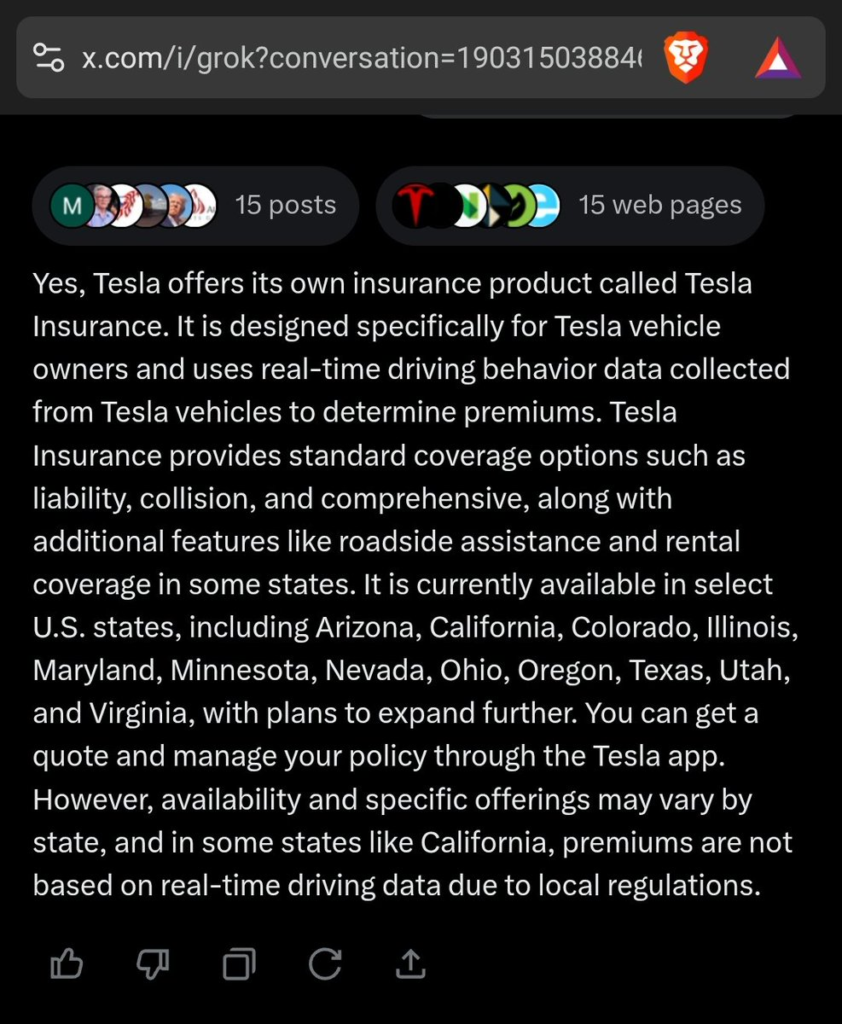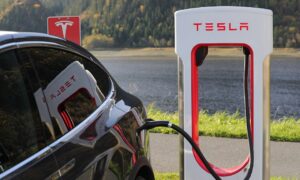Tesla disrupted the automotive world with EV innovation. Now it’s doing the same to auto insurance — but should Tesla owners opt for it?
If you’re a Tesla driver (or planning to be one), understanding Tesla Insurance isn’t just about pricing. It’s about safety, tech, data, and personalization. Here’s a detailed analyst breakdown covering costs, coverage, third-party alternatives, reviews, and everything in between.
How Much Does Tesla Insurance Cost?
Tesla Insurance is not your average car policy — and it’s priced accordingly.
- The average annual cost for full coverage on a 2021 Tesla is $4,098, or about $352/month.
- That’s 72% higher than the U.S. national average (based on a comparable 2023 Toyota Camry).
Here’s a quick model-wise breakdown:
Estimated Tesla Insurance Cost by Model (Annual Full Coverage)
| Model | Estimated Annual Premium Range (USD) |
|---|---|
| Model 3 | $2,250 – $4,300 |
| Model Y | $2,000 – $4,000 |
| Model X | $2,925 – $5,700+ |
| Model S | $3,100 – $5,700+ |
| Cybertruck | TBD (Expected to be comparable to Model X) |
⚠️ Important: Prices vary widely by state, safety score, mileage, and coverage level.
Cheapest Insurance for Tesla (3rd-Party Options)
While Tesla offers built-in insurance, many owners explore third-party providers due to better premiums or broader availability.
📉 Cheapest Full-Coverage Providers (Example: Model 3, 2021)
| Provider | Monthly | Annual |
|---|---|---|
| Travelers | $188 | $2,252 |
| Auto-Owners Insurance | $199 | $2,393 |
| USAA* | $205 | $2,456 |
| Nationwide | $206 | $2,472 |
| Geico | $285 | $3,419 |
*USAA is only available to military members and families.
Across models, Auto-Owners Insurance and Travelers consistently offer the most affordable rates.

Tesla Insurance Reviews
Tesla Insurance earns praise for its tech-first approach but faces criticism for:
- Limited availability (12 states)
- High premiums for luxury models
- Poor customer service ratings
| Category | Rating |
|---|---|
| Cost & Discounts | 3.9 |
| Coverage Options | 4.0 |
| Availability | 3.4 |
| Industry Reputation | 3.6 |
| Customer Experience | 3.8 |
Tesla Insurance is often attractive only if you drive safely and live in a supported state.
Tesla App Reviews (Insurance-Specific)
Tesla’s app-driven approach is both its biggest strength and biggest weakness.
👍 Positive:
- Real-time driving feedback with Safety Score
- Easy policy management and updates
- Apple Wallet integration
👎 Negative:
- Frustration with app-only support channels
- Confusing claims process flow
Tesla excels at UX for cars, but insurance support still feels beta for many users.
Tesla Car Insurance Coverage
Tesla Insurance offers standard and some unique coverage options:
✅ Standard Coverage:
- Bodily injury liability
- Property damage liability
- Collision & comprehensive
- Personal Injury Protection (PIP)
- Uninsured/Underinsured motorist coverage
🛠️ Add-ons:
- Glass protection
- Rental car reimbursement
- Roadside assistance
- GAP insurance
The plans are competitive, but availability varies by state.
Why Is Tesla Insurance So Expensive?
Tesla models are tech-heavy and expensive to repair, but there’s more to it:
🔍 Tesla’s pricing is based on:
- Real-time driving behavior via Safety Score
- Location and local risk factors
- Miles driven
- Deductible amount
- Coverage level
- Vehicle model
Unlike traditional insurers, Tesla does not use age, gender, marital status, or credit score — which can be a pro or con depending on your profile.
❓ Tesla Car Insurance: FAQ
Q: Is insurance on a Tesla expensive?
Yes — up to 72% higher than the national average.
Q: Is Tesla Insurance worth it?
Only if you drive safely, live in a supported state, and prioritize Tesla ecosystem integration.
Q: Is insurance cheaper for EVs?
Not necessarily. EVs like Tesla are often more expensive to insure due to repair costs and parts availability.
Q: Can Tesla Insurance cover non-Tesla cars?
Not currently — it’s designed for Tesla vehicles only.
Final Verdict
Tesla Insurance is smart, integrated, and evolving, but not the best fit for everyone.
- Safe drivers in supported states = ✅
- Premium model owners or those outside eligible states = ❌
- Need responsive support = ⚠️ Consider third-party providers





















